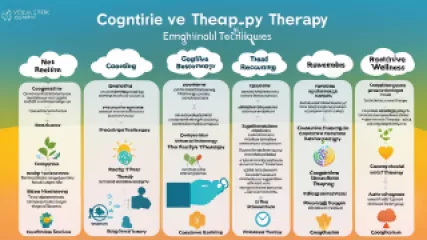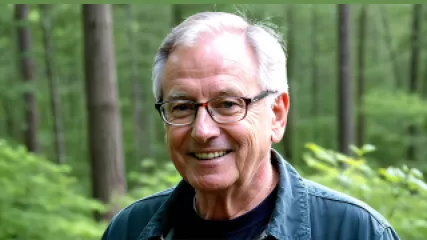Cultural Identity
Embracing Cultural Identity: A Personal ReflectionThe Journey of Self-DiscoveryAs a child, I never fully understood the significance of my cultural heritage. It was simply a part of my identity, something that was woven into the fabric of my everyday life. But as I grew older and ventured out into the world, I began to realize the profound impact that my cultural roots had on shaping who I am. It was a journey of self-discovery that would ultimately lead me to a deeper appreciation and embrace of my cultural identity.Growing up, I was immersed in the traditions and customs of my family's cultural background. The vibrant flavors of the food we shared, the melodic rhythms of the music that filled our home, and the rich tapestry of stories passed down from generation to generation â these were the threads that bound us together as a community. Yet, in the midst of this cultural richness, I often found myself grappling with a sense of duality, as the outside world seemed to operate by a different set of norms and expectations.The Struggle to ReconcileAs I navigated the complexities of navigating between the cultural values of my family and the dominant culture that surrounded me, I experienced a constant struggle to reconcile these two seemingly disparate worlds. On one hand, I deeply cherished the traditions and beliefs that were so central to my upbringing. They provided a sense of belonging, a connection to my roots, and a deep well of wisdom and resilience that I could draw upon.On the other hand, the external pressures to conform to societal norms, to shed the "otherness" that came with my cultural identity, were often overwhelming. I found myself caught in a tug-of-war, torn between the desire to embrace my cultural heritage and the need to fit in and be accepted by the mainstream.This internal conflict manifested in various ways throughout my life. In school, I would often feel self-conscious about the packed lunches my mother prepared, or the way I spoke a mix of languages at home. In social settings, I would sometimes hesitate to share my cultural traditions, fearing that they would be misunderstood or perceived as "exotic." And in my personal relationships, I grappled with the challenge of finding partners who could truly understand and appreciate the depth and richness of my cultural identity.The Transformative Power of Embracing Cultural IdentityIt was not until I reached a pivotal moment in my life that I truly began to confront and reconcile these internal struggles. I realized that the very thing I had once seen as a burden â my cultural identity â was, in fact, a profound source of strength and empowerment. It was a revelation that would forever change the way I viewed myself and my place in the world.Through a deep dive into the history, traditions, and values of my cultural heritage, I began to uncover a profound sense of pride and belonging. I marveled at the resilience and adaptability of my ancestors, who had navigated the challenges of cultural displacement and oppression with unwavering determination. I found solace in the timeless wisdom and spirituality that were woven into the fabric of my cultural identity, and I discovered a renewed sense of purpose and direction in my life.Embracing the Richness of Cultural DiversityAs I embraced my cultural identity, I also came to appreciate the richness and diversity of the world around me. I began to see the unique perspectives and experiences of others not as threats to my own identity, but as opportunities for mutual understanding and growth. I sought out conversations with people from different cultural backgrounds, eager to learn about their stories and traditions, and to find the common threads that bind us all together as human beings.In this process of cultural exchange and exploration, I discovered a profound sense of empathy and compassion. I became more attuned to the challenges and struggles that marginalized communities face in navigating a world that often fails to recognize and celebrate their cultural identities. And I made a conscious decision to use my own journey of self-discovery as a means of advocating for greater inclusion, representation, and understanding.The Power of Cultural Identity CoachingAs I continued to delve deeper into the complexities of cultural identity, I found myself drawn to the field of cultural identity coaching. Through my own experiences, I had come to understand the transformative power of embracing one's cultural heritage, and I was passionate about helping others navigate this journey of self-discovery.In my work as a cultural identity coach, I have had the privilege of guiding individuals from diverse backgrounds through the process of uncovering and embracing their cultural roots. Whether it's helping a young person overcome the internal conflicts they face in reconciling their cultural identity with societal expectations, or supporting an adult who is seeking to reconnect with their ancestral traditions, my goal is to empower my clients to see their cultural identity as a source of strength, resilience, and personal growth.
"Embracing your cultural identity is not about rejecting the dominant culture, but rather about finding a harmonious balance between the two. It's about reclaiming your power, your voice, and your inherent worth as a human being."
Kenzie Stewart, Cultural Identity Coach
Through my work, I have witnessed the profound impact that this process of cultural identity exploration can have on an individual's sense of self-worth, belonging, and overall well-being. When we embrace our cultural roots, we unlock a deep well of wisdom, resilience, and connection that can profoundly transform our lives.The Ongoing Journey of Cultural IdentityAs I reflect on my own journey of embracing my cultural identity, I recognize that it is an ongoing process, one that is constantly evolving and shifting as I navigate the complexities of the world around me. There will always be moments of self-doubt, moments of tension and conflict, as I continue to grapple with the dual nature of my cultural identity.But what I have learned, and what I hope to impart to others, is that the true power lies not in the avoidance or rejection of this duality, but in the embrace of it. By acknowledging and honoring the richness and diversity of our cultural heritage, we unlock a profound sense of self-acceptance, resilience, and personal growth.And as we continue to navigate the ever-changing landscape of our cultural identities, we must remember to approach this journey with compassion, empathy, and a willingness to engage in meaningful dialogue. Only by fostering a deeper understanding and appreciation for the cultural diversity that exists in our world can we truly build a more just, equitable, and inclusive society.In the end, the journey of embracing one's cultural identity is not a solitary one. It is a collective effort, a tapestry of stories, traditions, and experiences that connect us all as human beings. And as we each take our own steps towards a deeper understanding and appreciation of our cultural roots, we contribute to the rich and vibrant mosaic of our shared humanity.So let us embrace our cultural identities with pride, with courage, and with a steadfast commitment to building a world that celebrates the beauty and complexity of our diverse experiences. For in doing so, we not only empower ourselves, but we also pave the way for a more just, equitable, and compassionate future for all.The Importance of Cultural Identity CoachingAs a cultural identity coach, I have had the privilege of witnessing the transformative power of embracing one's cultural heritage. Through my work, I have seen the profound impact that this process of self-discovery and empowerment can have on an individual's overall well-being, sense of belonging, and personal growth.One of the key aspects of my work as a cultural identity coach is helping clients navigate the complexities of reconciling their cultural identity with the dominant societal norms and expectations. Many of my clients have struggled with feelings of alienation, self-doubt, and a deep sense of disconnect between their inner and outer worlds.Through a collaborative and compassionate approach, I guide my clients through a process of uncovering and embracing their cultural roots. We explore the history, traditions, and values that have shaped their identity, and we work to reframe these elements as sources of strength, resilience, and personal empowerment.By reconnecting with their cultural heritage, my clients often experience a profound shift in their sense of self-worth and belonging. They report feeling more grounded, more connected to their communities, and more empowered to navigate the challenges and opportunities that life presents.
"Working with Ivy as my cultural identity coach has been a truly transformative experience. She helped me uncover a deep well of strength and resilience within my cultural identity, which I had previously seen as a burden. Now, I feel more connected to my roots, more confident in my place in the world, and more empowered to use my cultural identity as a source of personal growth and positive change."
Jeremy Oliver, Client
Beyond the individual level, the work of cultural identity coaching also has far-reaching implications for our broader societal landscape. By helping individuals embrace and celebrate their cultural diversity, we can foster a more inclusive, equitable, and compassionate world â one that recognizes and values the rich tapestry of human experiences and perspectives.As a cultural identity coach, I am deeply committed to this mission of empowerment and social change. Through my work, I aim to inspire and empower individuals to reclaim their cultural identities as sources of strength, wisdom, and personal growth. And in doing so, I believe we can collectively pave the way for a more just, equitable, and connected world for all.The Transformative Power of Cultural Identity CoachingAt the heart of my work as a cultural identity coach lies a deep belief in the transformative power of embracing one's cultural heritage. Through my own journey of self-discovery and the countless stories I've witnessed from my clients, I have come to understand that our cultural identities are not just a part of who we are â they are the very essence of our being.When we engage in the process of cultural identity exploration and empowerment, we unlock a profound sense of personal agency, resilience, and connection. We tap into a well of wisdom, traditions, and values that can serve as a guiding light in navigating the complexities of our lives. And we cultivate a deep sense of self-worth and belonging that can transcend the boundaries of the dominant culture.For many of my clients, the journey of embracing their cultural identity has been a transformative one, marked by a newfound sense of purpose, direction, and personal growth. They have reported feeling more grounded, more connected to their communities, and more empowered to use their cultural identity as a source of strength and positive change.
"Before working with Ivy, I felt like I was constantly trying to fit into a mold that wasn't meant for me. But through our sessions, I was able to reclaim my cultural identity and see it as a wellspring of power, resilience, and personal growth. Now, I approach the world with a renewed sense of confidence and purpose, knowing that my cultural heritage is a profound part of who I am."
Hunter Carter, Client
And it's not just my individual clients who have benefited from this transformative process. As more and more people embrace their cultural identities, we are witnessing a powerful shift in the broader societal landscape. Communities are coming together to celebrate their diversity, to share their stories, and to build bridges of understanding and connection.By fostering a deeper appreciation for the richness and complexity of cultural identity, we can cultivate a more just, equitable, and compassionate world â one that recognizes and values the unique perspectives and experiences that each of us brings to the table.The Ongoing Journey of Cultural Identity ExplorationOf course, the journey of embracing one's cultural identity is not a linear or straightforward one. It is a constant process of self-discovery, reconciliation, and growth â a tapestry of experiences that evolves and shifts with the changing tides of our lives.There will always be moments of tension, of confusion, and of self-doubt. But it is in those moments that we have the opportunity to deepen our understanding, to cultivate greater empathy and compassion, and to ultimately emerge stronger and more resilient.As a cultural identity coach, I have the privilege of walking alongside my clients as they navigate this complex and ever-evolving landscape. Together, we explore the nuances of their cultural heritage, the challenges they face in reconciling it with the dominant culture, and the ways in which they can harness the power of their identity to create positive change in their lives and in the world around them.And through this process, I have come to deeply believe that the embrace of cultural identity is not just a personal journey â it is a collective act of empowerment, a movement towards a more just, equitable, and compassionate future for all.So let us continue to embrace our cultural identities with pride, with courage, and with a steadfast commitment to building a world that celebrates the beauty and complexity of our diverse experiences. For in doing so, we not only empower ourselves, but we also pave the way for a more just, equitable, and compassionate future for all.















